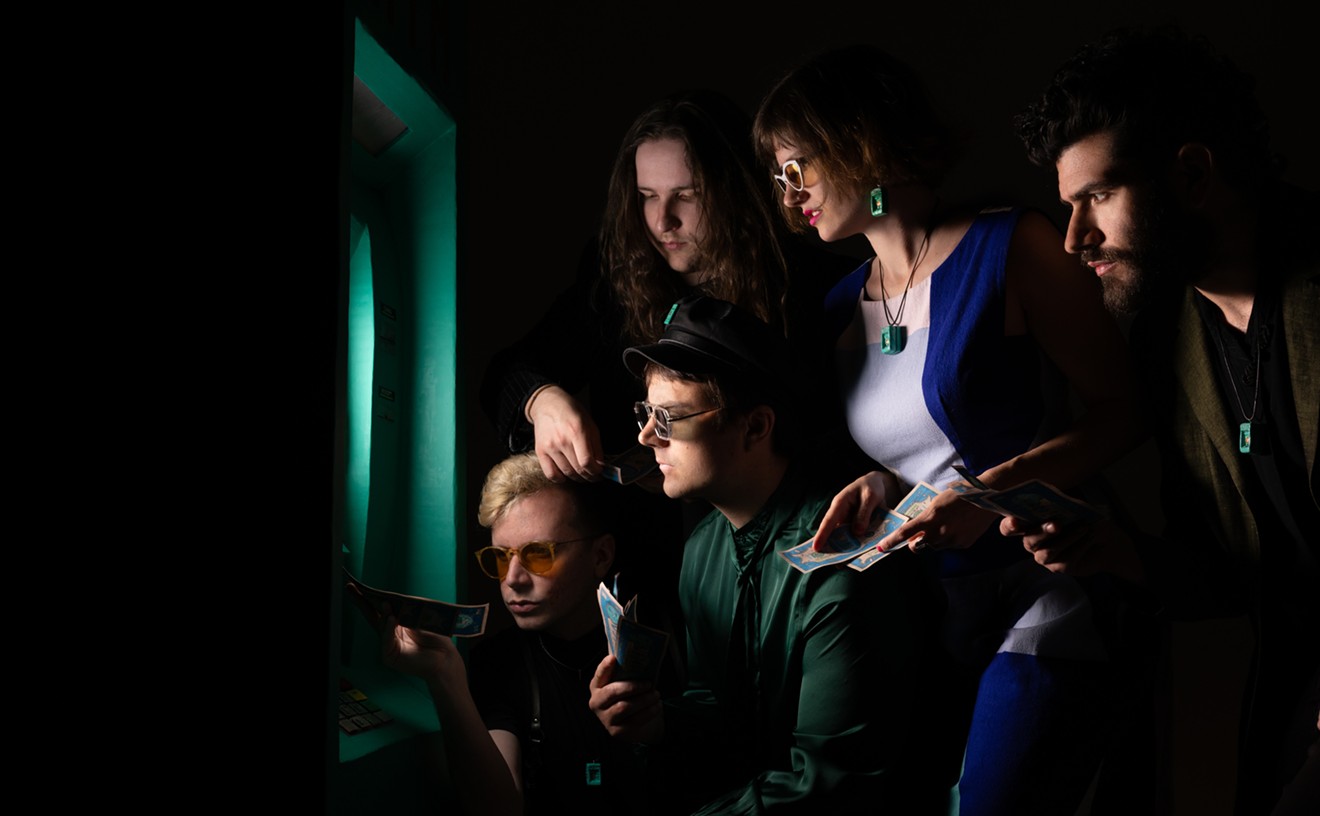It's a fitting award for an innovative musician with so many firsts credited to his name: the first rock-steady record, "Tougher Than Tough" (1966); the first Jamaican songs with electric bass ("Went to the Hop") and electric piano ("Blazing Fire"); the first duet with a female vocalist (Millicent Patsy Todd on "Love Not to Brag"); and the first reggae song ("Seven Letters"). He's also the only Jamaican artist to occupy the top seven slots on the national pop chart during the same week, accomplished during the height of his popularity in 1960 as the King of Ska, the cool vocalist in the porkpie hat. And then there's the part he played in discovering a young Bob Marley, introducing the singer to producer Leslie Kong in 1962. Whew!
This year the Seventeenth Annual Miami Reggae Festival will feature pioneers such as Morgan alongside surviving figures of the R&B movement out of which ska, rock steady, and reggae were born. As the first star of ska music, Morgan's career began when the Jamaican sound was still a direct take on popular rhythm and blues music coming from the United States, particularly the radio stations of New Orleans and Miami. His debut at age fifteen on the stage circuit of the island, performing as "Little Richie" for his imitation of Little Richard in a talent contest, coincided with the advent of the sound systems that were set up on street corners and in clubs, playing the same American R&B that was a staple of Jamaica's musical preference at the time.
"Little Richard, Louis Jordan, Louis Prima -- you know all those kind of rhythm and blues -- they had a big influence on us, because this was the music what was played by Jamaican sound systems," says Morgan, who splits time between his homes in Jamaica and Southwest Miami-Dade. "From the sound systems like Duke Reid, Coxsone Dodd, King Edward, Vere Johns -- the musicians used to perform all of the American music here."
As the music of Jamaica began to change from the R&B covers and stylings of their northern neighbor to the more Jamaican style of ska and its strong afterbeat, Morgan was on the frontlines of the new sound alongside fellow pioneers The Skatalites, Alton Ellis, Laurel Aitken, and Desmond Dekker, working with all the major producers of the period, including Duke Reid, Coxsone Dodd, and Prince Buster. Morgan's first recordings from the late Fifties to early Sixties included ska and proto-ska classics such as "Lover Boy," "Fat Man," "I Pray for You," and "Forward March," blending Louis Jordan-style R&B and the more indigenous sound of Jamaica -- a sound heard in his reworkings of R&B standards like Ben E. King's "Stand By Me" and Little Anthony's "Tears on My Pillow."
In recognition of this lineage in Jamaican music and the crossover appeal of both ska/rock steady and R&B, this year's Miami reggae festival includes three veteran North American R&B bands: the Manhattans; Howard Melvin & the Blue Notes; and Ray, Goodman & Brown. The prominence that R&B and love ballads have always had in Jamaica is highlighted by featuring on the bill these groups whose careers began in the Fifties and Sixties and climaxed in the Seventies with chart-topping hits such as "Kiss and Say Goodbye" (the Manhattans), "If You Don't Know Me By Now" and "Don't Leave Me This Way" (the Blue Notes with Teddy Pendergrass), and "Love on a Two-Way Street" (Ray, Goodman & Brown, known at the time as the Moments).
"In Jamaica in the Fifties, Sixties, and Seventies, rhythm and blues was the music of choice, believe it or not, not reggae," claims Sydney Roberts, president of Jamaica Awareness and the festival's producer. "Reggae was the hometown music, but the import was the music that we listened to more," the Jamaican native explains. "Now that we are here, what you find is that there's still a need. People still have positive, good-lovin' feeling toward the rhythm and blues, so it's a good way to bring back both together, increase your ticket sales, combine the community, 'cause what you're doing now [is] you're fusing the Caribbean community with the African-American community."
For all the influence of R&B on Jamaican music, and despite the now common appearance of U.S. hip-hop acts at reggae festivals, the lineup for the show is a curiosity even to the creators of earlier Jamaican vibes.
Ever performed in a festival that has combined R&B and Jamaican artists? "No, not really," laughs a bemused Desmond Miles of the Mighty Vikings, a premier dance band from the ska days of the Sixties. "I was thinking about if it was possible, toward the end of the show, to join forces with them and do a real ring-ding show. I think the crowd would enjoy this. Mix reggae and ska with R&B, man!"










